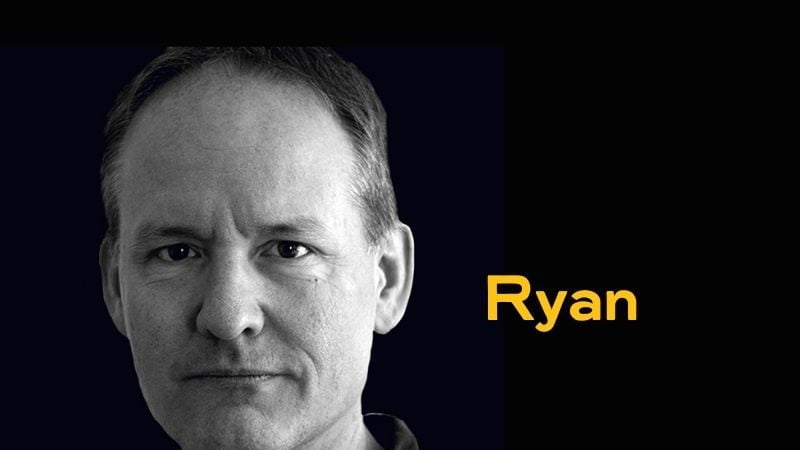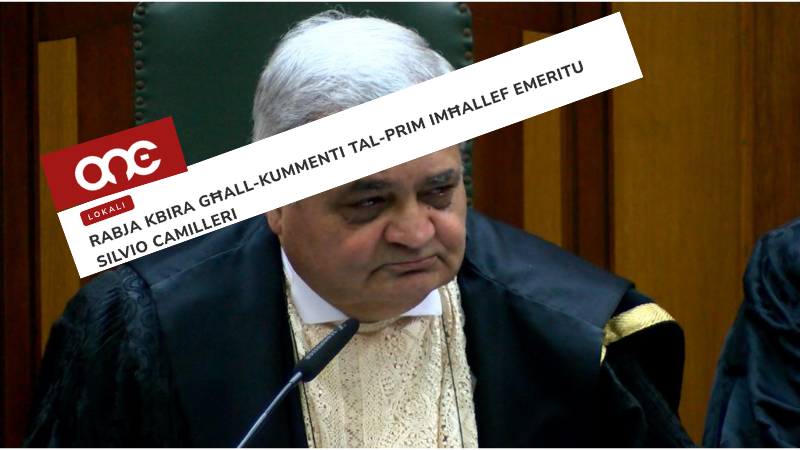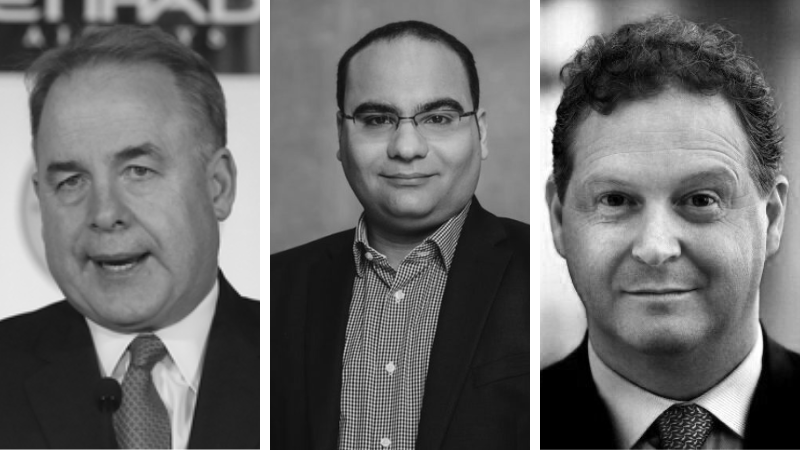Robert Abela took an evening off campaigning this week to attend an emergency meeting in Brussels over Russia’s invasion of Ukraine.
That’s how local media reported it, with senior Maltese officials quoted as saying Abela and other leaders would discuss “how we deal with Russia, notably holding Russia accountable for its actions”.
While I wouldn’t expect him to pick up on the irony, it couldn’t have been lost on his fellow leaders that the best customers for Malta’s cash-for-EU-passports programme are citizens of the country they’re determined to sanction.
It’s necessary to pull back and look at the larger Ukraine crisis in order to understand the position Malta now finds itself in.
While Putin’s two-pronged invasion with Russian troops is a massive escalation, it’s just the latest and most blatant phase of a conflict he’s been waging for years.
Tensions began with the 2004 Orange Revolution that saw massive street protests in Kyiv against an unpopular president who had won a rigged election. Until then Russia had been content with its buffer zone on the Great European Plain being run by a pro-Russia government.
The protests succeeded despite violent repression and new elections were held. You’ll recall that during this campaign the leading opposition candidate, Viktor Yushchenko, was poisoned with dioxin, allegedly by Russian agents, causing severe facial lesions and other health problems.
In 2014, Ukrainians went even further, electing a president who ran on a pro-EU platform. Russia responded by annexing the Crimean Peninsula, later holding a ‘referendum’ which confirmed that 97% of residents did, indeed, want to join Putin’s Russia.
Soon after, two predominantly Russian-speaking regions of eastern Ukraine were occupied by armed insurgents who declared they were local militia, but the so-called “little green men” carried Russian military weapons and equipment and wore unmarked uniforms. Putin initially denied they were Russian forces but later confirmed the presence of Russian military in the region.
It was the same ‘hybrid warfare’ strategy Putin used in his 2008 invasion of neighbouring Georgia. Foment unrest in areas with large Russian-speaking minorities using irregular militias and disinformation campaigns. Send in Russian ‘peacekeepers’ to protect those ‘ethnic Russian’ minorities. And then keep Russian troops there at the request of the de-facto separatist governments of the regions.
Putin got away with annexing Crimea and occupying Donetsk and Luhansk, but his seizure of territory didn’t bring about the reordering of Eastern Europe he’d been hoping for. A low level conflict has been simmering there ever since, despite attempts to broker cease fire agreements. And now here we are again.
After months of massing troops on Ukraine’s borders — troops from as far away as Russia’s Far East frontier with China — and after a month of denials that he had any intention of invading his neighbour, Putin went and invaded his neighbour.
He officially recognised the two eastern regions of Ukraine as independent countries on Monday, then made a ranting speech saying Ukraine had no legitimate history of statehood, and the way the former Soviet republics won independence in 1991 was illegitimate. Days later, he launched a full scale attack from three directions.
The only people surprised by this must not be very familiar with Adolf Hitler’s bluster in the lead up to World War II. Appeasement worked as well in that situation as it has with Putin’s impossible demands.
Russia’s ambassador to the United Nations hinted that they intend to go all the way to the capital. “We aren’t being aggressive against the Ukrainian people,” she said, “but against the junta that is in power in Kyiv.”
Europe is caught in the middle, forced to weigh the financial interests of individual Member States against the largest military invasion in Europe since World War II.
London has long been the playground of Russian oligarchs, and the city’s property market, financial market and elite schools are awash with Russian money.
Germany is in an even worse position. Some 55% of its gas supply comes from Russia, accounting for a quarter of German energy production. The rest is generated by a growing percentage of unreliable and heavily subsidised renewables, and from burning coal, like the massive power station down the street from my flat.
The longer the Ukraine crisis goes on, the tighter Russia can turn the screws on Europe’s most powerful economy. Who’d have guessed making itself dependent on Russian gas would be a bad decision?
Despite the harm to their own economic interests, the UK has already imposed financial sanctions on Russia and is threatening further escalation, and German chancellor Olaf Scholz has put a stop to the controversial Nord Stream 2 Baltic Sea gas pipeline at a time when German citizens are already burdened with the highest energy prices in Europe.
Former Russian President Dmitry Medvedev responded to the news on Twitter, saying, “Welcome to the brave new world where Europeans are very soon going to pay €2,000 for 1,000 cubic meters of natural gas!”
Russia has the upper hand, and economic punishments will only go so far. Putin learned from previous sanctions and has increasingly reoriented his country’s economy towards China. But a willingness to impose economic sanctions — including sanctions that involve financial sacrifice — matters as a demonstration of allegiance.
And so we come to the massive elephant trying to make itself inconspicuous in the centre of the room.
Will Malta take a similarly principled stand and stop selling passports to Russian oligarchs? And will Prime Minister Abela impose sanctions on Russian clients who have money stashed in Maltese banks?
Or will he simply make the usual excuses? ‘We are a small country… we are neutral… except when it comes to making money at everyone else’s expense… we’re very much pro-that, ha ha…’
Abela refused to answer this question, waffling on instead with a list of talking points.
“Our rejection rate is very high,” he said. “A strong percentage of applicants are refused citizenship, and that proves how robust the programme is.” He urged the press not to ‘harm’ the passport scheme, adding that the country should unite in preserving what is beneficial. “It was partly thanks to those funds that we could help our businesses and families during the pandemic. Not to mention the donations to Puttinu Cares and the many social projects through NDSF funds.”
I wonder if he meant the frenzy of spending on ‘social’ projects which just happened to be located in the districts of Labour members vying for reelection?
This isn’t the time for insincere assurances. Malta’s reliability as an ally has already been cast into doubt thanks to the government’s increasingly close ties with both Russia and China.
Russia has moved cautiously, avoiding outright confrontation as it expanded its presence in the region, which has included the signing of agreements with Cyprus — known as “Moscow on the Med” — and Malta for limited port access.
The Americans are worried Putin may try to use Malta as a naval base, but the more obvious potential for using Malta to evade sanctions was lost on no one. The Telegraph reported earlier this month on US concerns that “the Kremlin is attempting to use Malta as a soft-entry point for access to the European Union and international financial markets.”
In 2015, some 56% of applicants to Malta’s cash-for-passports programme were Russian. Their lead has since been displaced, but the 2021 Passport Papers investigation still put that number at around 37% of successful applicants. And despite Abela’s claims of due diligence, the list of new Maltese-Russian citizens includes some seriously unsavoury characters.
Given the collapse of the rule of law since 2013, and the history of previous Labour governments cosying up to the world’s most repressive regimes, it’s no surprise trust in Malta is in very short supply.
The post Cold War period has ended, and we’ve returned to the sort of turbulent multipolar world we haven’t seen since the early years of the 20th century. Alliances are more important than ever. Abela would be wise to remember actions speak louder than bland assurances.













It is so obvious that Abela wants to run with the hare and hunt with the hounds. If it is obvious to us it should be also to the other EU leaders.
If there is money to be made out of it then the short answer is yes.
This present situation is far more serious than I had previously thought. An excellent article clearly explained.
I can’t get over Robert Abela referring to the war as “The tension in Ukraine” when even Hungary’s pro-Russian Viktor Orban just said “This is not the time for politics, the EU must all pull together, tihs is WAR”
This is a good blog made, in today’s Malta.
I have been in Malta for the last 30 years, at that time it was difficult, but in a different way.
How is Mafia land where self-seeking has always been god? How is Mafia land where hypocrisy, backstabbing and brown-nosing take gold? And how is Mafia land where the most corrupt people always end up becoming party leaders?